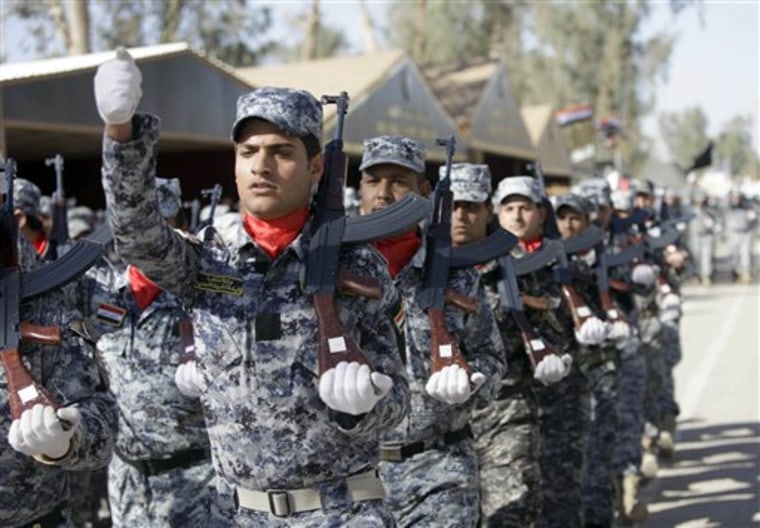The main rival of Shiite Prime Minister Nouri al-Maliki urged the Iraqi leader on Sunday to keep his promise to fairly distribute power in the new government about to be formed.
Ayad Allawi, leader of the Sunni-backed alliance that won the most seats in March parliamentary elections, grudgingly agreed to be part of the government after holding out for nine months. But he warned he could pull his support if al-Maliki violates their agreement aimed at assuring Sunnis they will not be sidelined in the new Shiite-dominated government.
"If the other party starts derailing and deviating from the drawn-up line that was agreed upon, then all stands will be reconsidered," Allawi told reporters in Baghdad.
Sectarian strains between Iraq's Sunni and Shiite Muslim groups have been at the heart of much of the violence in the country in recent years. The minority Sunnis dominated under Saddam Hussein. But since he was ousted in the 2003 U.S.-led invasion of Iraq, Shiites have been in charge.
Allawi agreed to go into the government as head of a newly created council that his allies say will give him veto power over al-Maliki's security and foreign policies. But he said Iraqiya would abandon the job if it does not come with executive power.
"We will accept the leadership of the council based on the (power sharing) agreement that has been signed," Allawi said. "If there is any change to the agreement on powers, then there will be a different story altogether."
Iraqiya is also supposed to get several key ministries in the new government.
Allawi — a Shiite and former prime minister — said he has not given al-Maliki his party's nominations for Cabinet posts, casting doubt on the prime minister's hopes of announcing a new government on Monday. Under a deadline set by the constitution, al-Maliki has until Saturday to present the new government for parliament's approval.
The political morass has stalled the formation of a new government since the March vote when Iraqiya edged out al-Maliki's political coalition by two seats in the 325-member parliament. The mixed results meant no alliance won a clear majority, forcing the parties into nine months of backroom negotiations to build enough allies for a ruling coalition.
Al-Maliki ultimately held onto his job by cobbling post-vote support from Kurds and religious Shiite hard-liners. Iraqiya cried foul, saying it had the right to form the government because it won the most seats in the election.
On Sunday, Allawi said Iraqiya abandoned that demand only because of the deal to share power among Iraq's Sunnis, Shiites and Kurds. Allawi warned al-Maliki to not take Iraqiya's participation in his Cabinet for granted.
Parliament postponed debate on Saturday over how much power the new council that Allawi is to head will have.
After al-Maliki announces his Cabinet, parliament must approve the candidates for 37 ministries, three deputy prime ministers and at least two vice presidents before the government can get to work.
